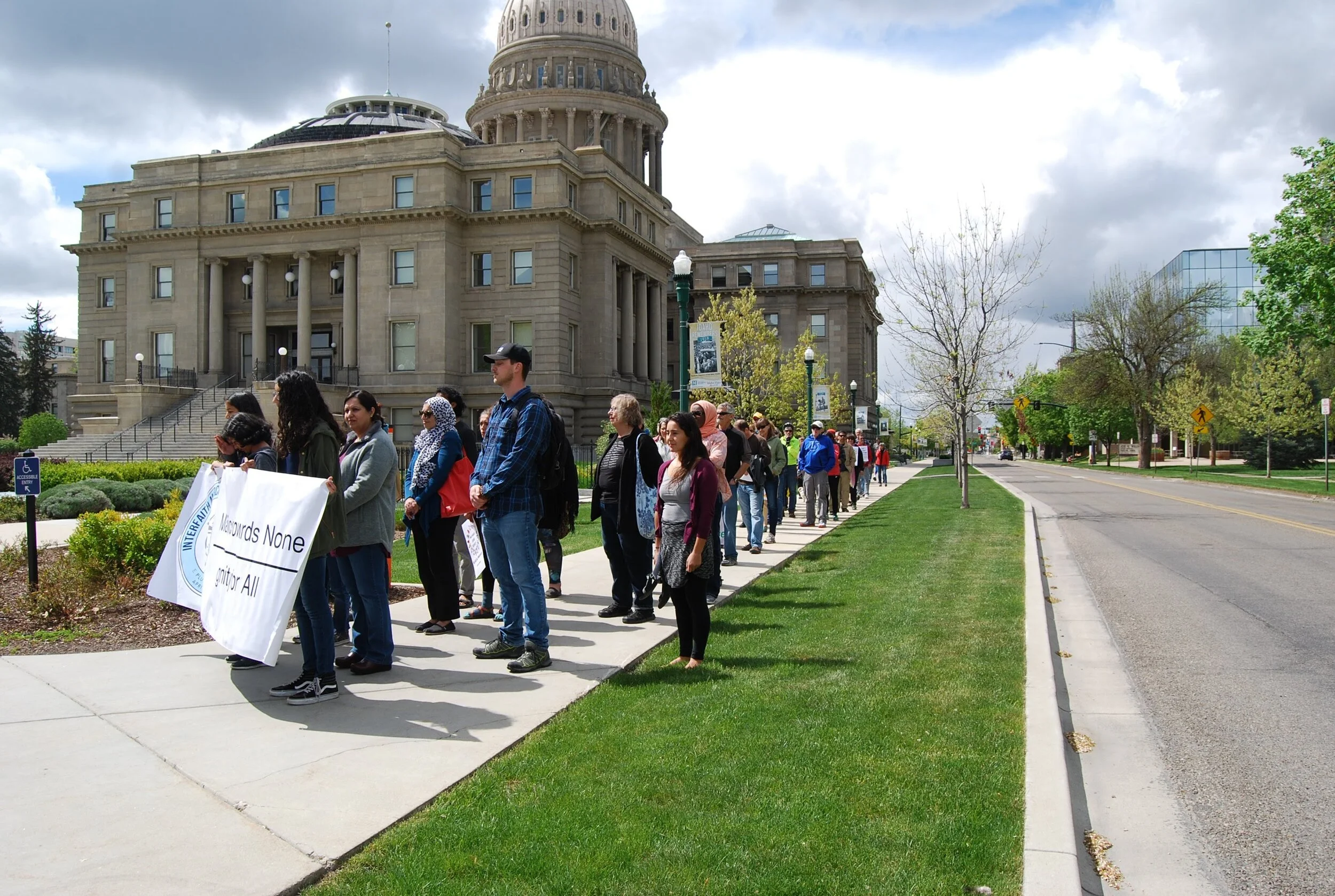Religious Freedom Part 6: Charlie Hebdo, Freedom of Speech, and Religion
by Rick Love
Why did more than a million people, including forty world leaders, march for freedom in France after the Charlie Hebdo massacre?
My colleague Jennifer Bryson explains: “The Paris attack was an attack not only on people but on a fundamental principle which is essential for the functioning of a democratic political system and a democratic civil society, namely freedom of speech.”
The world was moved by this stand against violent extremism and for freedom of speech.
Today (January 16, 2015) we celebrate Religious Freedom Day in the United States. And one of the best ways to celebrate religious freedom today is to understand and practice free speech in a multi-religious world. Without free speech there is no true religious freedom.
Some people wrongly conclude that religious freedom means we can never say anything negative about any other faith. But that is a misunderstanding of religious freedom. Promoting and protecting religious freedom means we protect the person, not her ideas; believers rather than their beliefs.
Freedom of religion is about a marketplace of ideas. We can and should engage in robust dialogue about our differences, preferences, and convictions. To do this well, we need to learn the art of dialogue instead of diatribe, invitation instead of intimidation, persuasion instead of coercion.
Promoting and protecting religious freedom means that we protect the rights of people of all faiths and those who have no faith (atheists and agnostics). They too have the right to promote their ideas. Even those who use cartoons to poke fun at or mock others' beliefs, like Charlie Hebdo.
Promoting and protecting religious freedom also means that we do so for the good of all. In other words, there are boundaries to free speech. Hate speech and violence against those who disagree with us undermines religious freedom. As the Global Charter of Conscience affirms, “The constant negotiation between the rights and responsibilities of each citizen and the wider common good is an ongoing challenge for societies that would be both just and free” (Article 8).
Navigating between the rights and responsibilities of each citizen and the wider common good is complicated, with both legal and social components. Changing the law is beyond my pay grade, so I won’t address the laws of the land; I want to speak about the habits of the heart.
In The Global Public Square: Religious Freedom and the Making of a World Safe for Diversity, Os Guinness show us how to navigate these differences with civility. He encourages us to follow the "three R’s" of religious freedom: rights, responsibilities, and respect (p.167). We acknowledge the rights of others to free speech and religion; we realize we need to be responsible in our speech and the practice of our religion toward others; we show respect toward other faiths. And we expect the same rights, responsibilities, and respect from others.
One way we can celebrate Religious Freedom Day is to practice and promote these three R’s of religious freedom – which are in fact peace practices. Peace begins with me… and you!










